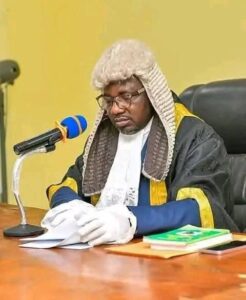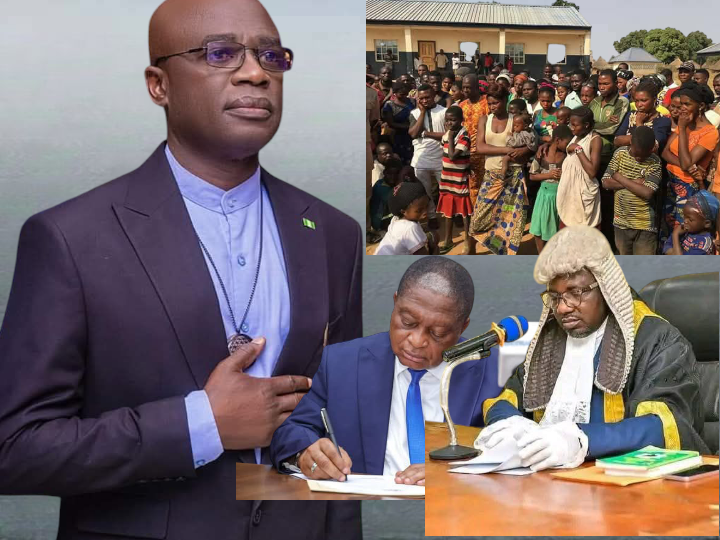*Relying on Falsehoods to Maintain Relevance is a Perilous Strategy
By Morgan Adikwu
Governor Hyacinth Alia’s tenure in Benue State has been marred by a series of actions that raise serious questions about his integrity and commitment to his campaign promises. Three significant instances stand out, reflecting a pattern of deceit and irresponsibility unbefitting a public officer.
During his campaign, Governor Alia pledged to resettle all Internally Displaced Persons (IDPs) in their ancestral homes within his first 100 days in office. He criticized the previous administration for its failure to address the plight of the displaced, positioning himself as the harbinger of swift action and relief. However, nearly two years into his tenure—over 600 days later—this promise remains unfulfilled.
Instead of admitting to this failure, Governor Alia has now proposed a five-year plan for resettlement, a stark deviation from his original commitment. This not only betrays the trust of the IDPs but also exposed a lack of accountability. While in contrast, the late President Musa Yar’Adua openly acknowledged the flaws in the election that brought him to power and committed to electoral reforms, exemplifying humility and responsibility—qualities seemingly absent in Governor Alia’s approach.
In October 2024, Governor Alia publicly denied any involvement in a lawsuit challenging the legality of the Economic and Financial Crimes Commission (EFCC), despite evidence to the contrary. He suspended the state’s Attorney General and Commissioner for Justice and Public Order, Barr. Fidelis Mnyim, accusing him of joining the suit without authorization.
The governor stated, “I gave no permission for him to enter an appearance for the state”. However, reports indicate that Benue State was among the plaintiffs in the consolidated case marked SC/CV/178/2023, challenging the constitutionality of the laws establishing the EFCC. This contradiction suggests an attempt to distance himself from a controversial legal action, raising doubts about his honesty and transparency.
Governor Alia also denied initiating the removal of the Benue State Chief Judge, Justice Maurice Ikpambese, implying that the State House of Assembly acted independently. However, the Speaker of the House clarified that the Assembly acted upon receiving a letter from the Executive, directly implicating the governor in the process. This disavowal not only exposes a lack of accountability but also undermines the integrity of the state’s judicial system.
Leadership founded on deceit is inherently unstable. Historical examples abound where leaders who engaged in unscrupulous behavior faced eventual downfall. Such actions erode public trust, hinder effective governance, and stymie development.
As the 2027 elections approach, Governor Alia’s record of unfulfilled promises and public deceit could significantly damage his political fortunes. In an era where the electorate is increasingly informed and vigilant, relying on falsehoods to maintain relevance is a perilous strategy.
Governor Alia’s pattern of dishonesty not only tarnishes his administration but also poses a significant obstacle to the progress and development of Benue State. A commitment to truth and accountability is essential for building a formidable and prosperous nation.
